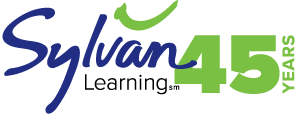Written by Dallan Hunt
It’s been said that some of the most severely impacted students of the pandemic have been early readers.
At Sylvan, we’ve been helping more PreK – 3 students over the past few years than ever before.
In addition to academic needs being increased as a result of the pandemic, our young children’s social-emotional learning has suffered as well. Social and emotional learning (SEL) is the process through which children learn and apply five core competence areas: self-awareness, self-management, social awareness, relationship skills, and responsible decision-making (Weissberg et al., 2015).
These are the skills that young people need in order to effectively manage emotions, follow directions, work well with others, plan and achieve goals, and make responsible short- and long-term decisions. In short, these are the skills that are ESSENTIAL to success in school and longer-term success in the workplace and in life.
Children with higher teacher-rated social competence in kindergarten are more likely to graduate, attend college, and have a job 20 years later.
It’s clear that early readers have challenges ahead, so here are some steps to meet those challenges.
-
- Step 1 – Understand the Challenge.
Reading starts at the very basic level of hearing and manipulating sounds, using listening and speaking activities – called phonemic awareness. One example is rhyming words, which helps students to listen for and hear patterns of sounds in words. Once students are comfortable with interacting with sounds, the ability to connect sounds with printed language is the next step – called phonics. In both phonemic awareness and phonics, there are many different skills early readers need to master, and it can be daunting. As adults we may take it for granted, but for early readers it’s a whole new world. For more information, watch this video presented by Ronda Arking, Director of Language Arts Program at Sylvan Learning.
Here she outlines the basics of early literacy, to help you understand the skills your early reader needs to have mastered in order to become a fluent reader. - Step 1: Identify Where to Start.
Because of the complexity and sheer number of skills early readers are developing, one way to save time is to get an accurate picture of what your early reader already knows, and what they still need help with. Sylvan Learning provides an extensive early literacy assessment, where we assess for both phonemic awareness and phonics skills. The assessment is conducted by qualified educators and only takes about 45 minutes. The results of the assessment will provide you a clear picture of where your child needs to start, and what skills they should focus on. For more information on our assessment, check out this link. - Find a strong reading program.
Sylvan Learning has developed an extensive early literacy program. It has been a labor of love between both teachers and education researchers, and is updated on a continual basis. It covers the long list of phonemic awareness and phonics skills, and includes skills such as the following:1. Print concepts, like direction of printing, letter shapes, and spacing between words
2. Letter recognition and alphabet order
3. Letter sounds
4. Isolating beginning, middle and ending sounds
5. Consonant digraphs like ‘sh’ and ‘ch’
6. Vowel sounds
7. Blending and decodingOur caring, expert teachers know what skills your budding reader needs to succeed: from sounding out basic words and identifying rhymes and word patterns to reading with accuracy and understanding.
We also help early readers focus on decoding words and sentences, building vocabulary, and developing comprehension skills, such as retelling a story or answering key questions about a text.
- Step 1 – Understand the Challenge.
Looking for more support to help your child with reading?
Overall, early literacy is an important part of each child’s learning, as it paves the way for future success in both school and life.
Summer is the perfect time to really focus some time on getting your child the supper they need.
For more information, learn more about our reading programs today!
And when you’re ready, your local, caring experts are here to answer any questions you have, and help you get your child on track to reading success!
